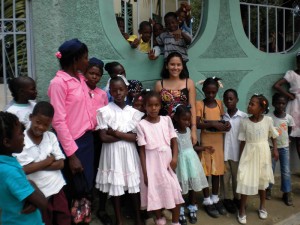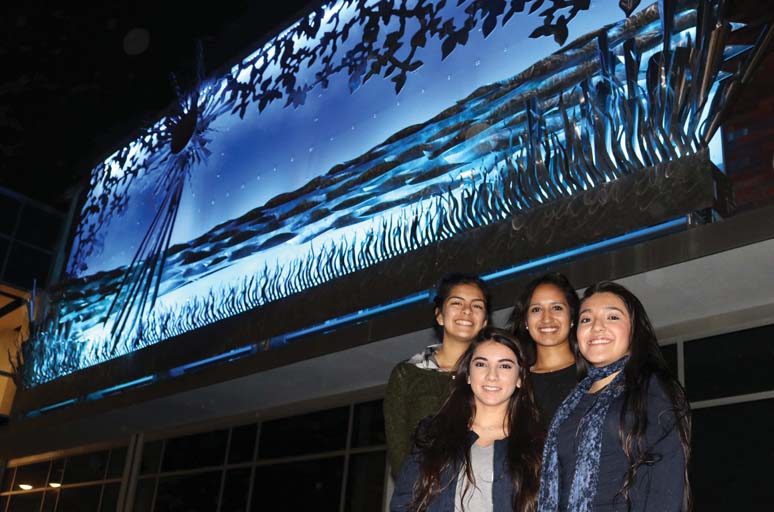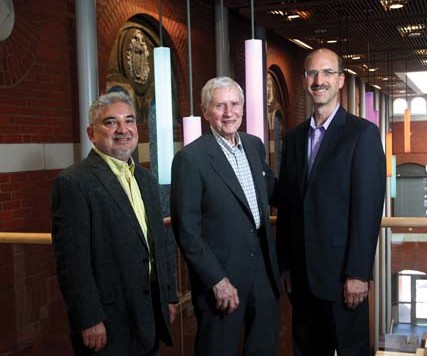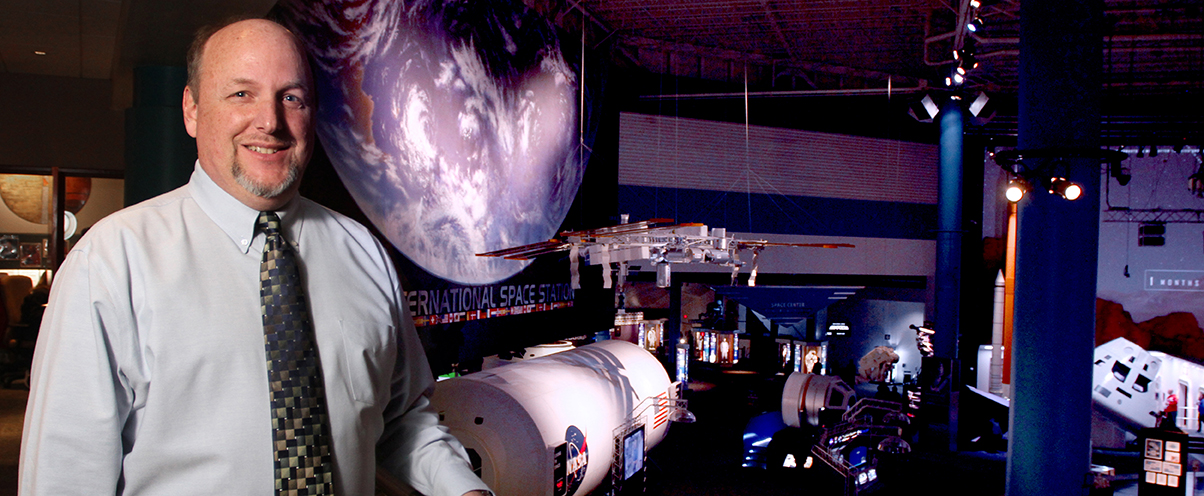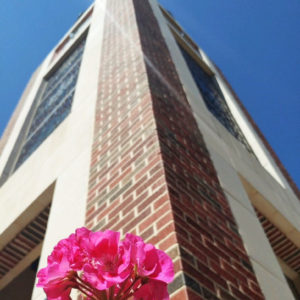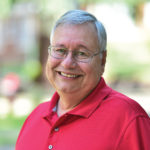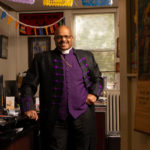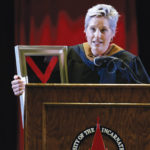By Ashley Lindstrom
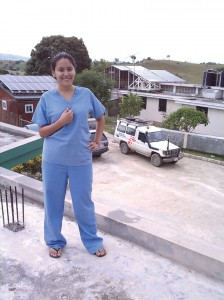
Longina Gallegos at the St. Joseph's Clinic in Thomassique, Haiti. The first and only medical facility in the village, the Medical Missionaries organization opened the clinic in 2007.
Longina Gallegos’s life has become a Frederick Buechner quote in motion, “The place God calls you to is the place where your deep gladness and the world’s deep hunger meet.”
A former Navy corpsman and 2011 graduate of the University of the Incarnate Word Ila Faye Miller School of Nursing and Health Professions, Gallegos heard the call over two years ago. When she graduated with her nursing degree, she knew there was a steady job waiting in her hometown of San Antonio, where her family also resides.
“I just wanted to go straight into volunteering,” she said. And so she did, with Medical Missionaries, a 501(c)(3) founded in 1997.
“I had two choices: It was Nicaragua or Haiti, and I prayed about it and knew that Haiti was the poorest country [in the Western Hemisphere] even if it was easier to go to Nicaragua because I can speak Spanish.”
In 2010, a 7.0 magnitude earthquake took the lives of hundreds of thousands of Haitians, devastating the already struggling Caribbean country. Nevertheless, Gallegos found herself overwhelmed by the warmth that the people of Haiti showed her.
“The people there were very passionate, and caring, and loving toward me,” Gallegos said. “Even though they are very poor and don’t have much they are just happy to be a family and grateful for everything God’s given them.”
“So that was just great experience to see how people can live without anything and still be happy, she said.
For several months in 2011, Gallegos served in the maternity unit at Medical Missionaries’ clinic in Thomassique, Haiti, the first and only medical facility in the village. There, she assisted in deliveries and prenatal care, educated patients, prescribed needed medication , and made sure the babies were growing.
“I wanted to do more patient care, focusing on ICU, but over there I just wanted to be wherever they needed me,” she said. “I wanted to learn how they utilize their instruments. They don’t have as much as we do, so they have to implement all these other tools.”
Laurie Singel, instructor in the School of Nursing, said she cried when Gallegos told her she was going to volunteer in Haiti.
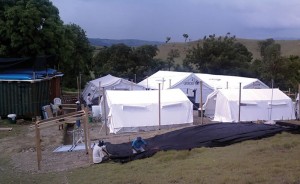
Cholera Treatment Center Medical Missionaries collaborated with Doctor's Without Borders to set up a cholera treatment center in July 2011. The outbreak of cholera in Haiti after the earthquake had the clinic overflowing with patients. Now the center has several trained staff and all patients are treated promptly, reducing the complications.
“She sees her nursing as a true calling from God to help people,” said Singel. “I believe that, too.”
According to Singel, Gallegos stood out as a student, and her humility and unselfishness continue to set her apart.
Gallegos expects to go back to Haiti in 2012 to assist a church group with a children’s after-school program. In the meantime, she’s spending time with loved ones, gearing up for her return trip.
“My church really helped me with donations, and people have been supportive of me. My family and friends are helping me out so I can serve over there,” Gallegos said. “I am more than willing to serve. As long as I have their support, that’s all I need and with God I can do anything.”
Setting a challenge to help others
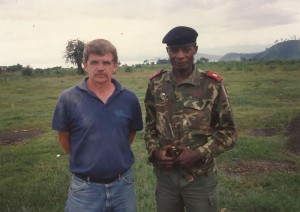
Ray Vandermeer with the head of the police who, along with his men, kept the peace in Goma and the refugee camp.
A thousand miles away from Haiti Raymond “Ray” Vandermeer, a 1991 graduate of the School of Nursing, is living in Costa Rica with his granddaughter, independently translating English and Spanish texts into Braille. Nine years ago, he “stumbled upon” the opportunity while visiting the Central American country.
“It was a challenge, so why not?” he said.
Vandermeer was raised in Alaska among 11 siblings. “My parents were very religious and taught us faith and beliefs that have held me through my life,” said Vandermeer, who joined the Navy after completing high school. During his military service, he studied finance and accounting at Chaminade University, a Catholic Marianist college in Honolulu, Hawaii.
“I left the Navy as a lieutenant, moved to San Antonio to be with my daughter and her family and ended up at Incarnate Word,” he explained. After earning his nursing degree, he worked in several hospitals around San Antonio and Houston, as well as a nursing home.
Vandermeer then began teaching himself Braille as another challenge, first culling knowledge online and then with the National Federation of the Blind.
“Blind people do not, usually, consider themselves as being ‘disabled,’” he said. “They say that being blind is an everyday inconvenience and they are just as capable of doing what sighted people can do.”
Vandermeer had first-person experience with vision impairment.
“I was beginning to go blind until I had surgery on both my eyes,” he said. “Thanks to an unknown donor, my vision was restored and I actually see better now than I ever have in my life.”
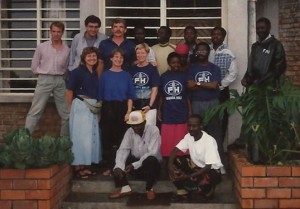
UIW alumnus Ray Vandermeer along with the staff of "Food for the Hungry." Vandermeer worked for the organization while in Zaire, now the Democratic Republic of the Congo.
Unlike Haiti, medical resources in Costa Rica are more plentiful and modern. In fact, the country draws medical tourists looking to undergo various procedures for a fraction of what they might cost elsewhere. Vandermeer himself had his vision-saving surgery performed at the noted Hospital La Católica in San José.
He credits his experience at an African refugee camp, time spent at a hospital in India, and his education at the University of the Incarnate Word for compelling him to commit his life to helping others.
“The idea of ethics was ingrained in a lot of the classes at UIW. That was just part of what was taught,” Vandermeer said. “One was that you do the right thing towards your patients, your clients or whomever you are dealing with. Another was to have empathy for that person and to try to put yourself in their shoes.”
Vandermeer is now translating the New Testament into Spanish Braille; he has completed the book of John.
“We are looking at moving to Panama in February,” said Vandemeer. “I have an opportunity there to do Braille transcribing. It will be to take the church written material and transcribe it. This is a chance to help a lot of blind people… Other than that, my future is in God’s hands.”

